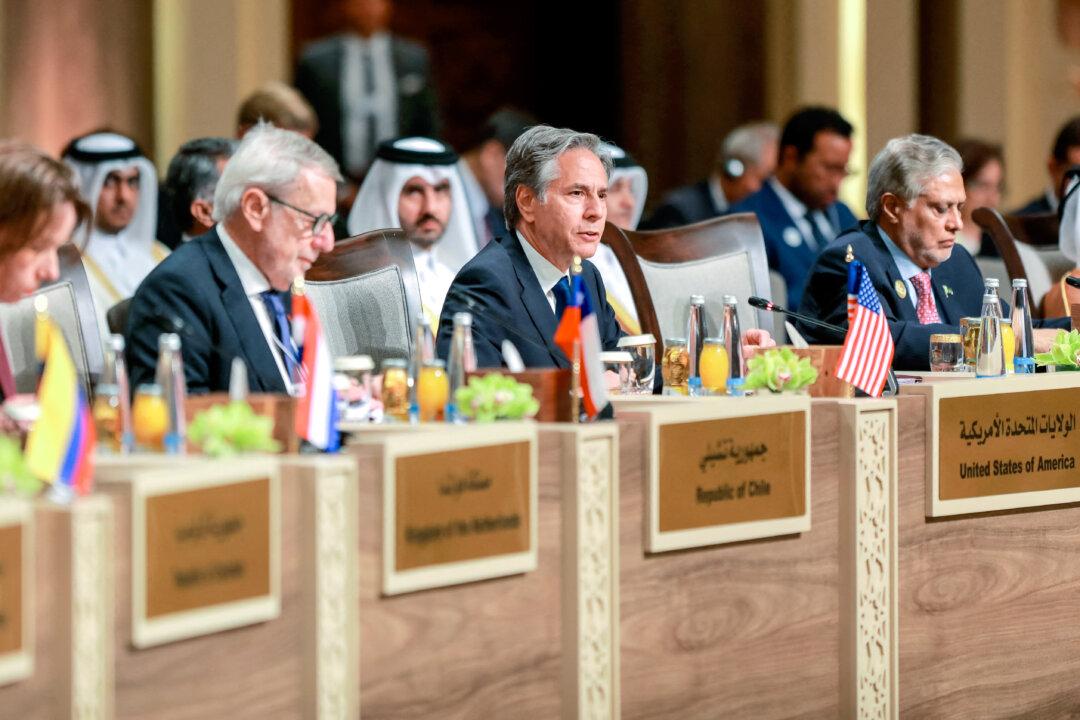U.S. Secretary of State Antony Blinken announced $404 million in new aid to the Palestinian people on Tuesday, as he called for other countries to back a cease-fire proposal for the Gaza Strip and redouble their aid efforts after more than eight months of fighting in the region.
Mr. Blinken attended a conference in Jordan, dubbed “Call for Action: Urgent Humanitarian Response for Gaza,“ to discuss the ongoing humanitarian concerns as Israeli forces continue to fight with Hamas, a U.S.-designated terrorist organization. The secretary of state said his ”primary and first message” at the Tuesday conference was to support a cease-fire plan President Joe Biden articulated on May 31.





